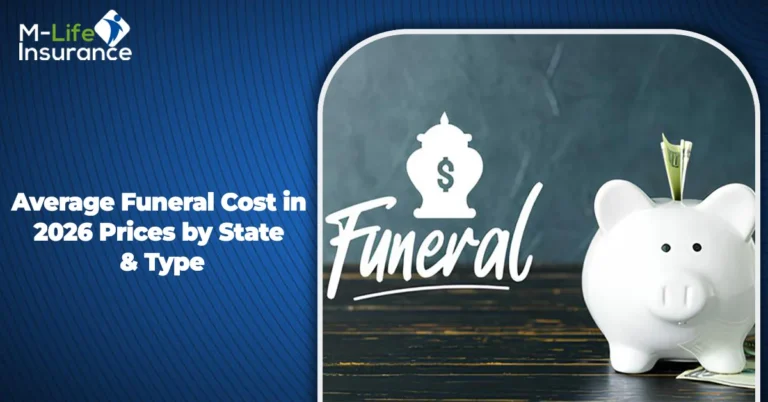Most of us want to secure our loved ones’ future financially so they don’t have to suffer in our absence. The best way to do so is to get a life insurance plan, but what if the premiums of traditional life insurance are too high for you? Well, the limited pay life insurance is a great alternative for you.
Thank you for reading this post, don't forget to subscribe!It offers you mental satisfaction along with financial security for your loved ones without breaking the bank. Just like any other life insurance plan, this policy also comes with some benefits and drawbacks. So before making it your final policy, it’s suggested to do some research about it.
Do you want to know what a limited pay life insurance is, how it works, its types, and pros and cons? Well! Read on the blog post to get an idea about how this type of insurance works. We will try our best to cover everything you need to know about this plan.
What is Limited Pay Life Insurance?
It is a type of permanent life insurance plan also known as whole life insurance that allows the insured to pay premiums for a specific period or until a particular age. When that agreed period ends, the insured stops paying premiums while coverage remains active.
In simple words, with a limited pay life insurance, the policyholder has to pay his entire plan’s premiums over a set period instead of over a lifetime. However, premiums could be high as the insured has to pay them for a limited time. The premium rates are also affected by the selected payment structure, and plan size, along with the policyholder’s age, health, gender, etc.
Note that your already existing whole life insurance can’t be converted into a limited-pay insurance plan.
What is an example of Limited Pay Life Insurance Policy?
An example of a limited pay Life insurance Policy is 8-pay life insurance. With 8-pay life insurance, the insured has to pay the premiums for the first 8 years of the plan. As the initial plan value is accounted for in the first eight years, there will be greater potential growth for cash value in those years. But remember that your lifetime payments are condensed, each premium payment will be high.
Some other examples of limited-pay life plans are:
- Single premium
- 7 pay life insurance
- 10-pay life insurance
- 15-pay life insurance
- 20-pay life insurance
- Life paid-up at age 65
Types of Limited Pay Life Insurance
Various plans are available along with some unique benefits and drawbacks. Some of them offer cheaper limited payments while others accumulate more cash value. Let’s explore them one by one:
1- Limited Pay Whole Life
Limited pay whole-life policy provides death benefits along with cash value accumulation. It is one of the most important types of limited pay insurance as it covers the insured for his whole life, and offers a guaranteed savings account and dividends that grow with time.
Unlike other plans, you will know exactly how many payments you have to make with this plan and when your policy will be paid in full. This feature makes it an incredible choice for those who want to know what they have to spend and when they will be done with their payments.
2- Variable Universal Life
It is another type of permanent life insurance that comes with cash value. However, these cash values are invested in sub-accounts having bonds and stocks. Unlike whole life, the cash value in variable universe plans may change according to the stock market.
It offers a distinctive way to save for retirement while offering you financial protection. You can consider this type if you want to get some better-earning potential along with the flexibility to alter your coverage. But remember that investing in this type may also come with some market risk.
3- Indexed Universal Life
Indexed universal life insurance invests our cash value amount in accounts tied to the performance of a financial index like the S&P 500 Index. It offers you a guaranteed growth potential on a cash value account along with the flexibility of your policy.
Meanwhile, this life insurance plan is marketed as a safe investment option, and IUL is considered as a high returns plan. But in reality, there can be a variation in the growth rates along with many other policies.
4- Guaranteed Universal Life
With a guaranteed life insurance plan, the insured has to make premium payments for a particular year. After that time, the policy offers lifetime coverage. It can be a great way to make sure you are covered with enough coverage without worrying about your future premiums.
In addition, these plans are bought by individuals who are looking for only a reasonable death benefit, not a cash value account.
5- Limited Pay Survivorship Life Insurance
This plan offers coverage for married couples and does not provide the death benefit until the surviving spouse passes away. It provides a significant way to give tax-free money via a wealth transfer strategy to the aligned beneficiary.
How Much Does Life Isurance Cost?
That’s why, many families buy this plan for estate planning as their gross estate is so big that it will ultimately generate an estate tax concern. Moreover, the payout of second-tier plans may provide a better return on investment as compared to individual plans.
6- Hybrid Long-Term Care Insurance
Due to the high cost of long-term care, most people are getting hybrid long-term care insurance plans to protect their financial future. These plans provide life insurance benefits, long long-term care insurance and can be a good choice for those who want to save high costs of long-term care.
Note that hybrid life is a type of permanent coverage having a rider that grants you access to a part of the payout to pay for your nursing or hospice care.
Pros and Cons of Limited Pay Life Insurance
Before signing the policy, it’s crucial to understand the benefits and drawbacks of a limited pay life insurance plan. Here is a brief overview of them:
Advantages of Limited Pay Insurance
-
Limited Premiums
The most significant benefit of this insurance plan is the limited payments. With this feature, the policyholder can get paid-up status more quickly.
-
Higher Income Potential
Limited-pay life plans can be a great option for those who want a life insurance plan as a source of retirement income. This plan can generate higher income for them.
-
Faster Cash Value Accumulation
As the insured pays the policy’s premium upfront, the cash value grows faster. In this way, the policyholder can earn more money with time because of compound interest.
-
Policy Loans
If you want to use your life insurance plan as a personal bank account, limited-pay insurance is for you. It allows you to withdraw some cash value or get a policy loan against your plan.
-
Tax-Free Death Benefit
The death benefit of this plan is tax-free. It means the lump sum your beneficiaries may get is a tax-free income source and they don’t have to pay any tax on it.
-
Early Payment
With this life insurance, you can easily cover your premium payments well before your retirement years. It means you are secured before your income decreases.
Disadvantages of Limited Pay Insurance
-
Price
Many policyholders can’t afford their initial costs of limited pay life because of huge upfront payments. If the premiums are too high you may have to opt for longer pay periods to reduce your payments.
-
Chance to Miss a Payment
Due to its excessive cost, keeping your payments will be harder with limited pay insurance. In addition, if the policyholder fails to keep his plan in good standing, he may lose his coverage.
-
Limited Cash Value Growth
A traditional whole-life plan allows you to make payments and grow your cash value for your entire life. But with a limited pay life, once your premium payment period ends, there will be no more cash value accumulation.
The Bottom Line
Although limited pay Life Insurance has higher premiums, it also has a lot of other benefits that outweigh its drawbacks. One can enjoy the advantages of this plan paid in full without worrying about future premiums. Moreover, it also has various types so that you can go with the one which suits you the best.

Joyce Espinoza, Expert Life Insurance Agent
Joyce Espinoza is a trusted life insurance agent at mLifeInsurance.com. She’s been in the insurance industry for over ten years, helping people, especially those with special health conditions to find the right coverage. At MLife Insurance, Joyce writes easy-to-understand articles that help readers make smart choices about life insurance. Previously, she worked directly with clients at Mlife Insurance, advising nearly 3,000 of them on life insurance options.





